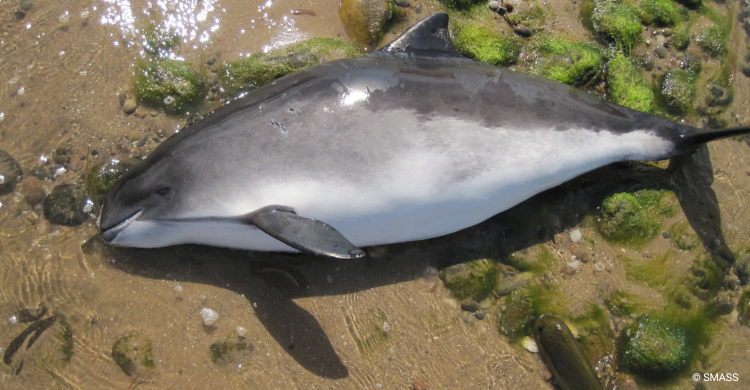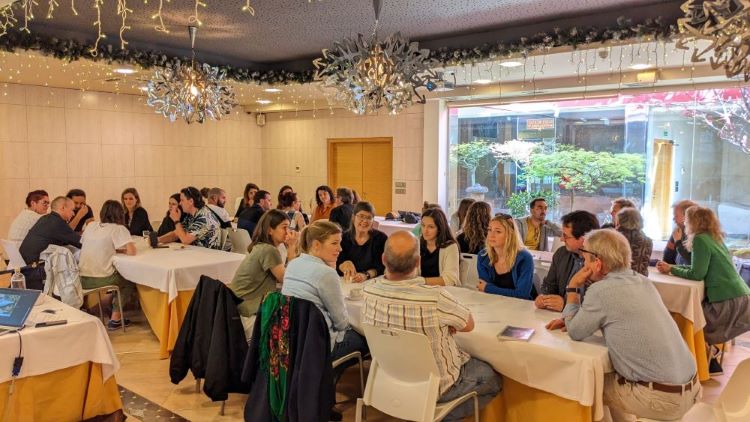Workshop on Scoping the Development of a European Marine Strandings Database

© Scottish Marine Animal Stranding Scheme
The workshop on Scoping the Development of a European Marine Strandings Database was organized on 16 April 2023, in O Grove, Galicia, Spain, as a part of the 34th Annual Conference of the European Cetacean Society.
Throughout Europe, there are several regional stranding schemes collecting data about stranded marine animals and undertaking varying levels of investigation, from basic morphometrics to full necropsies. Several of these longstanding networks hold multi-decadal datasets collated and reported at a national level. These data are used to assess proximal cause of death and monitor the health of marine animals at a national level. Many marine mammal species are highly mobile, and it the value of aggregating and collating strandings data throughout their ecological range has long been recognised. Some mechanisms exist to collate these data at scale, for example annual requests for national summaries made to parties by intergovernmental organisations (ICES, ASCOBANS, IWC). There is an increasing need to have these data at finer resolution with shorter reporting lags in order to better identify emerging threats or unusual mortality events. This requires a more geographically inclusive view to effectively access trends and changes in marine mammal health and distribution. Therefore, a centralised European Marine Stranding Database was proposed by ASCOBANS to collate the data from regional stranding schemes into one centralised access point for better marine mammal monitoring.
The aim of the workshop was to scope the feasibility of such a database through discussion with stranding networks across Europe. The objectives were to:
- Identify stakeholder requirement / specifications / concerns for any database
- Consider issues of data ownership
- Identify technical considerations and operation maintenance
- Indication of whether ASCOBANS develops its own database or a joint one with other IGOs
- Formulate a design brief, including potential outline costs and timescales for the project
- Identify interested individuals for a Working Group to elaborate further on objectives
The workshop involved an initial exploratory survey followed by presentation from various European stranding schemes and organisation with database experience. The second half of the workshop involved group discussions on what a successful database would involve and was concluded by a final survey of enduring concerns and focus points.
Outcomes from workshop talks and breakout discussions highlighted the support and willingness of European networks for developing a collaborative database. It was suggested that this is approached in stages, with the initial phase including basic data (‘what-where-when’) as a trial. This can be built on with more detailed information as the practicalities of the database develop (i.e. issues of data harmonisation). Participants identified the ICES data centre as a potential collaborator due to their track record for designing and managing data services that contains elements that meet the requirements of this unified database.
The presentations and the report of the workshop will be posted on the workshop page in due course.

Breakout group discussions at the workshop. © ASCOBANS Secretariat
Last updated on 09 December 2023




